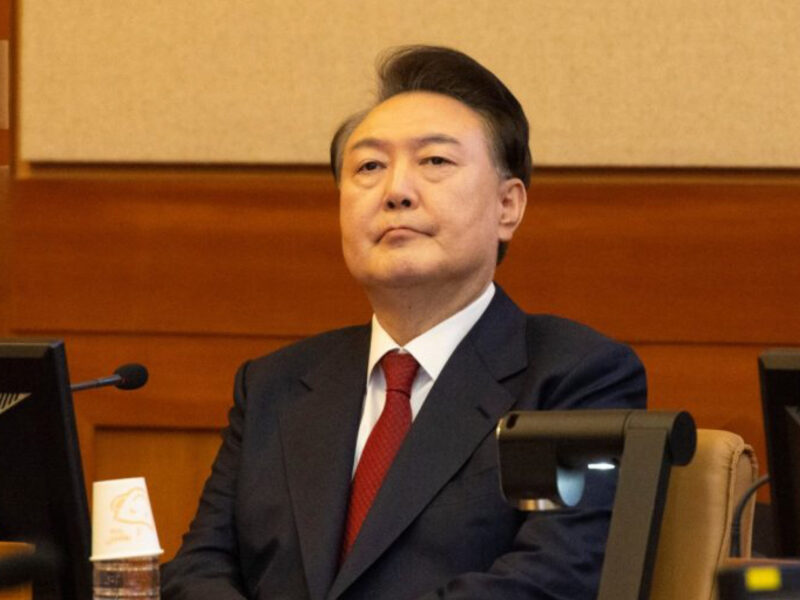Yoon Suk Yeol Removed from Office in Unanimous Ruling by South Korea’s Top Court
South Korea’s Constitutional Court delivered a landmark ruling on Friday, unanimously deciding to oust impeached President Yoon Suk Yeol following his controversial declaration of martial law, which plunged the nation into months of political strife. The ruling comes as the country prepares for new presidential elections within the next 60 days.
Yoon, 64, faced suspension from office after lawmakers reacted to his actions on December 3, when he attempted to disrupt civilian governance by deploying armed soldiers to parliament. He has also been implicated in insurrection-related charges connected to a separate legal matter.
The public watched the court’s verdict unfold live on television, with millions tuning in. Some users of the country’s primary messaging platform, KakaoTalk, experienced delays due to overwhelming traffic following the high-profile announcement. “Given the serious negative impact and far-reaching consequences of the respondent’s constitutional violations… (We) dismiss respondent President Yoon Suk Yeol,” stated acting court President Moon Hyung-bae while announcing the decision.
With Yoon’s removal effective immediately, election officials are expected to announce dates for the upcoming presidential elections shortly. Outside the courthouse, reporters noted that supporters of Yoon expressed outrage, with some even threatening the judges responsible for the ruling, necessitating increased police protection for those individuals.
The judges condemned Yoon’s actions as “violations of the core principles of the rule of law and democratic governance.” They determined that deploying armed troops in parliament to thwart lawmakers would infringe upon the military’s political neutrality and constituted politically motivated actions. The judges emphasized, “The respondent’s unconstitutional and illegal acts are a betrayal of the people’s trust and represent a serious violation of the law that cannot be tolerated.”
While opposition lawmakers celebrated the ruling as a “historic” moment, members of Yoon’s party exited the courtroom in silence. Following the judgment, Yoon issued a brief apology for not living up to the expectations of the citizenry.
Yoon becomes the second South Korean president to be impeached by the court, following Park Geun-hye’s ousting in 2017. After weeks of contentious hearings, judges deliberated for more than a month as public unrest grew in the lead-up to the verdict. Security measures were heightened across the area, with police placing restrictive vehicles around the courthouse and deploying specialized teams nearby.
Protests erupted outside as anti-Yoon demonstrators gathered to watch the ruling unfold. Cheers erupted when the court announced the decision, with some people celebrating publicly and expressing overwhelming emotional reactions. “When the dismissal was finally declared, the cheers were so loud it felt like the rally was being swept away,” commented Kim Min-ji, a 25-year-old Yoon opponent.
Although Yoon continues to have a cadre of extreme supporters, he justified his attempts to undermine civilian governance as efforts to eliminate “anti-state forces.” Tragically, this year has seen the deaths of at least two of his staunch advocates, who self-immolated in protest of his impeachment.
The ruling showcases the resilience of South Korean democracy, according to Byunghwan Son, a professor at George Mason University. “The very fact that the system did not collapse suggests that Korean democracy can endure even the gravest challenges, such as a coup attempt,” he remarked.
Reports indicated that portraits of Yoon would be removed from military installations, as regulations mandate that a photograph of the commander-in-chief be displayed in such locations.
In financial markets, the South Korean won gained significantly against the U.S. dollar following the announcement, with the benchmark KOSPI index rising by 8.62 points (0.35 percent). The country has been navigating a leadership void since Yoon’s martial law declaration, marked by ongoing crises, including a major aviation incident and the deadliest wildfires in its history.
This week, South Korea faced a 25 percent tariff on exports to the United States after President Donald Trump introduced global reciprocal tariffs. Following the court’s ruling, National Assembly Speaker Woo Won-shik emphasized, “We have reaffirmed that no one in the Republic of Korea is above the law. We have made clear that any power committing unconstitutional or illegal acts must be held accountable.” Yoon also faces a separate criminal trial regarding insurrection charges linked to the martial law declaration. In the interim, Acting President Han Duck-soo will continue leading the country until new elections are conducted.









Join our Channel...